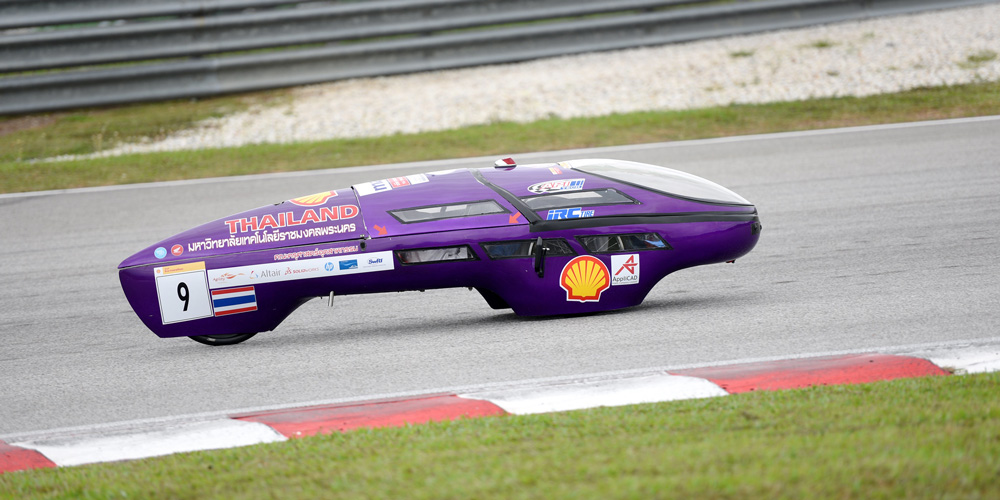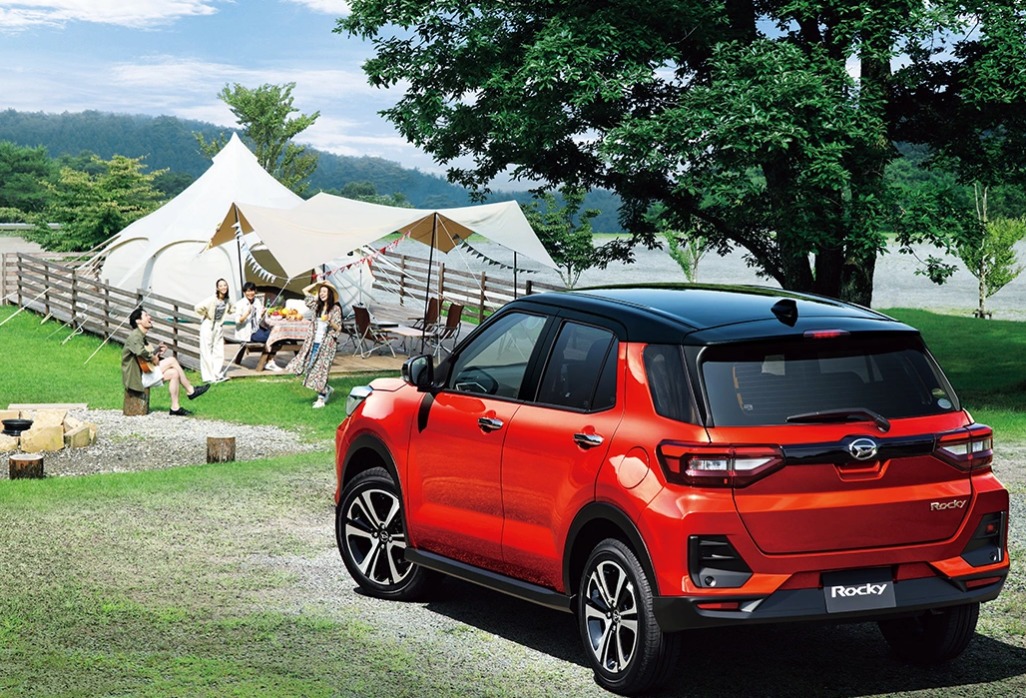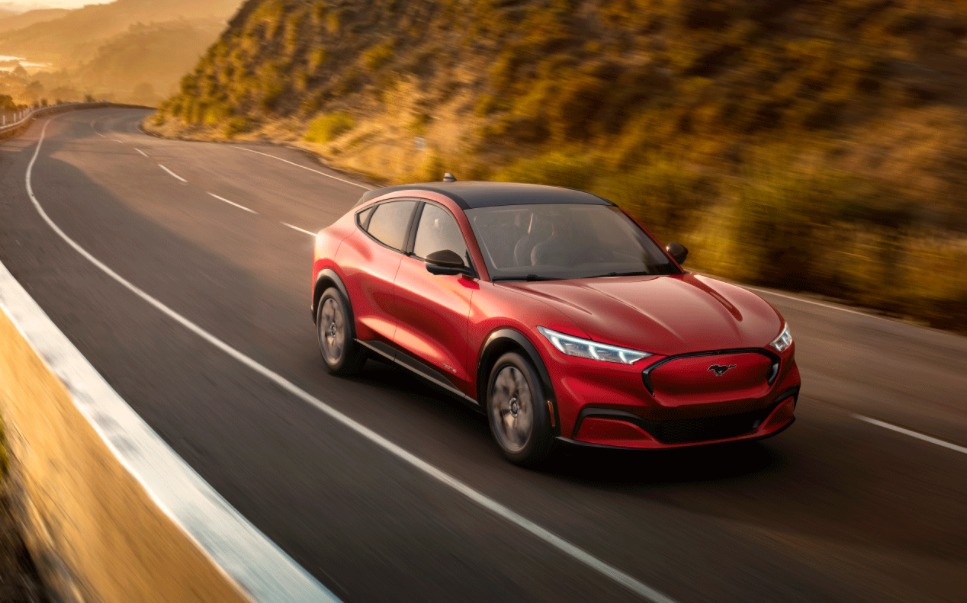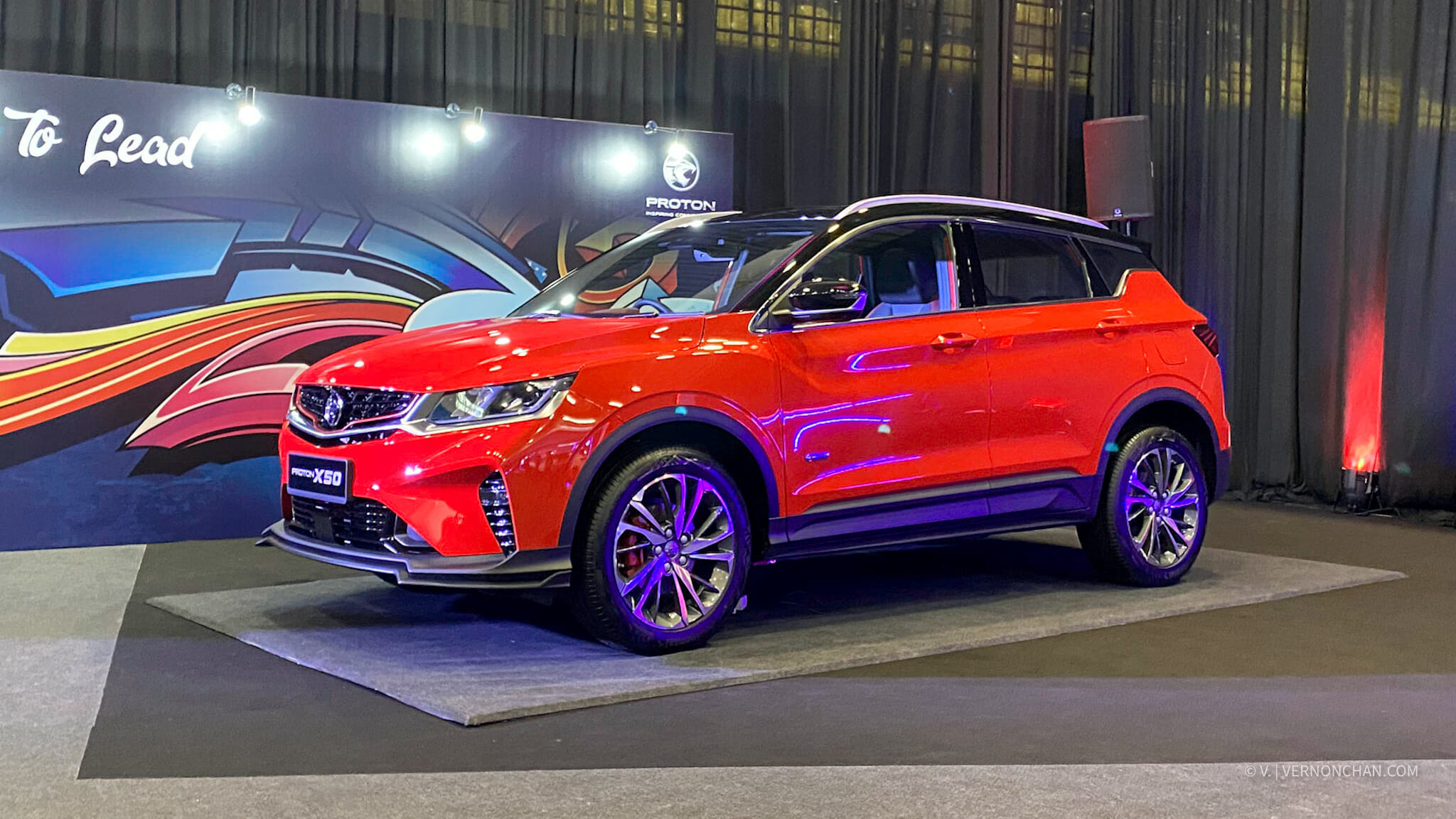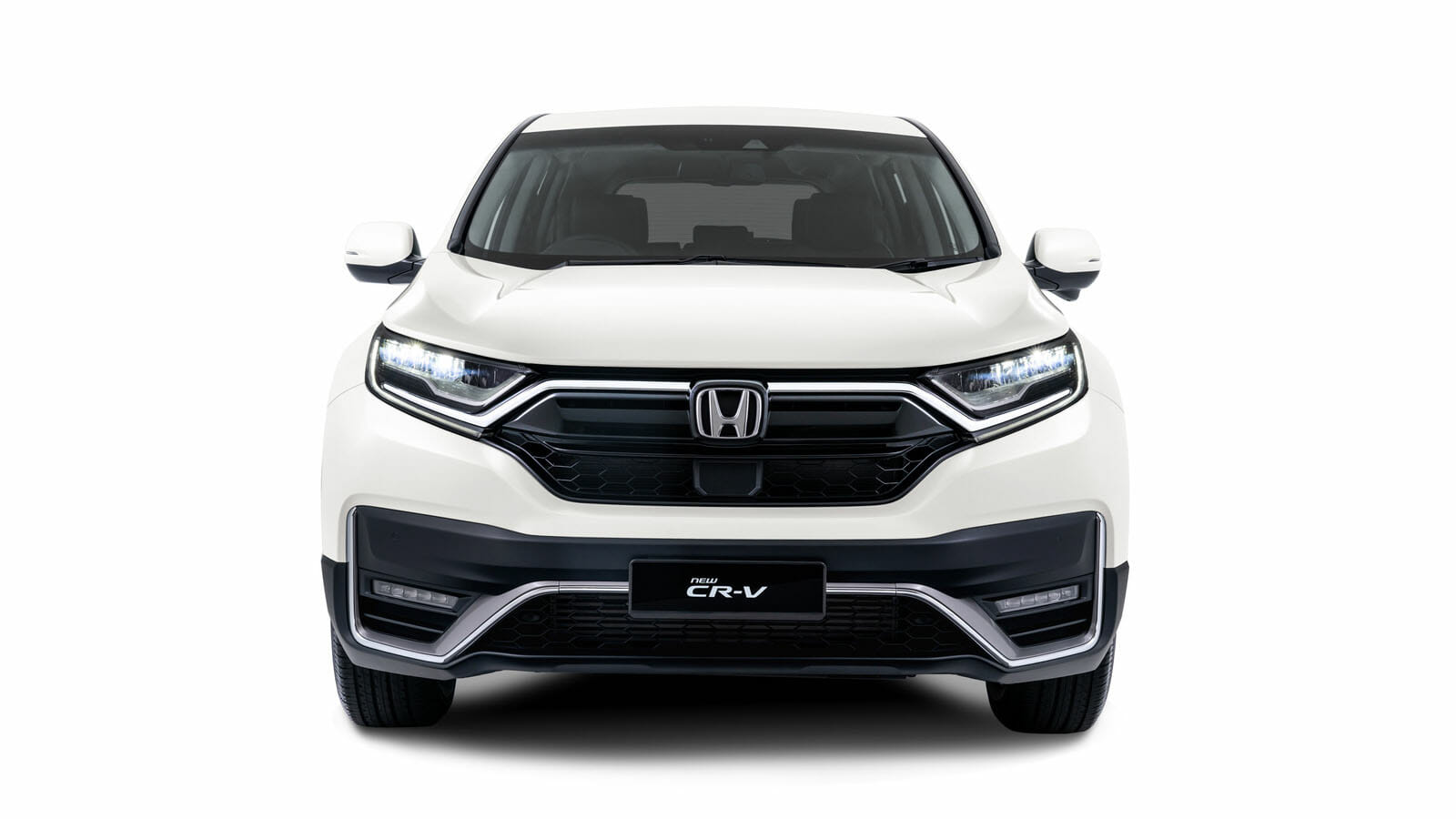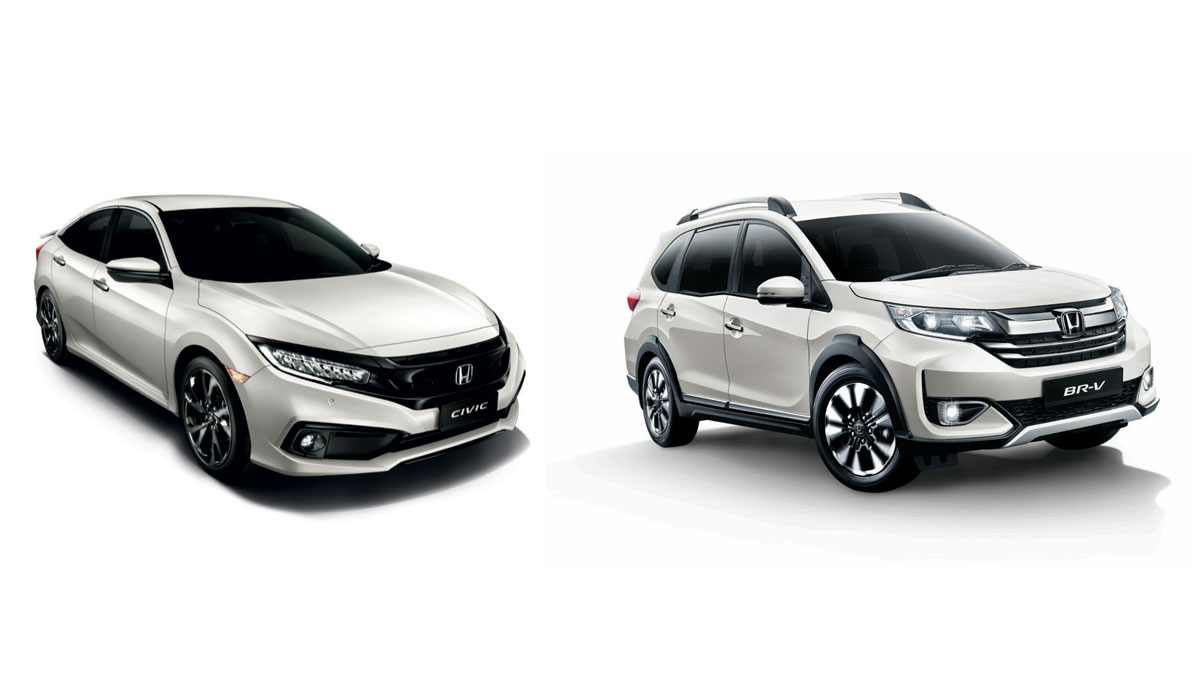The Shell Eco-marathon Asia 2019 competition, the pinnacle of the four-day Make the Future Live Malaysia, came to a close today. Teams from Thailand, China and Singapore pit their best ultra-energy-efficient vehicles in their respective prototype categories.
As you may be aware, the Shell Eco-marathon is divided into two main categories: UrbanConcept and Prototype. UrbanConcept vehicles resemble four-wheeled road-going cars, albeit more bulbous and futuristic-looking; while Prototype vehicles are ultra-streamlined, aerodynamic, looking a lot like mini formula cars.
Learn more about UrbanConcept and Prototype vehicles in this previous post.
The vehicles are then sub-divided into three energy classes: Internal Combustion Engine (ICE): Gasoline, diesel, ethanol (biofuel); Battery-electric Power; and Hydrogen Fuel Cell.
[irp]
There are two key competitions in SEM: the Mileage Challenge where the UrbanConcept and Prototype cars compete to travel the farthest, with the least amount of fuel; and the nail-biting Drivers’ World Championship (DWC), which pits UrbanConcept vehichles in a unique head-to-head race format on track.
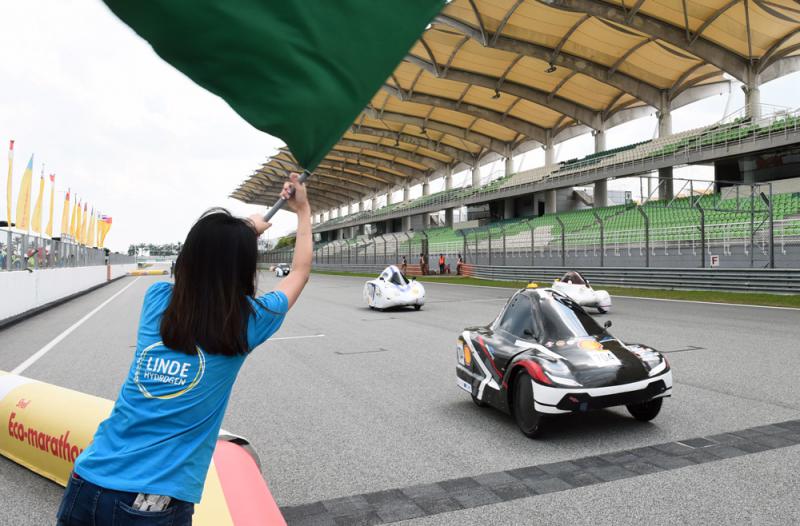
The second competition at SEM is on the penultimate day—the exciting Drivers’ World Championship (DWC) Asia. DWC pits UrbanConcept vehicles in a unique head-to-head race on track. It’s a competition to see who can cross the finish line first, with the least amount of fuel.
Mileage Challenge
In the Mileage Challenge, RMUTP Racing from Rajamangala University of Technology Phra Nakhon, Thailand, recorded 1,546.9 kilometres on a single litre of Ethanol with their Prototype car–the equivalent of driving from Kuala Lumpur, Malaysia to Bangkok, Thailand.
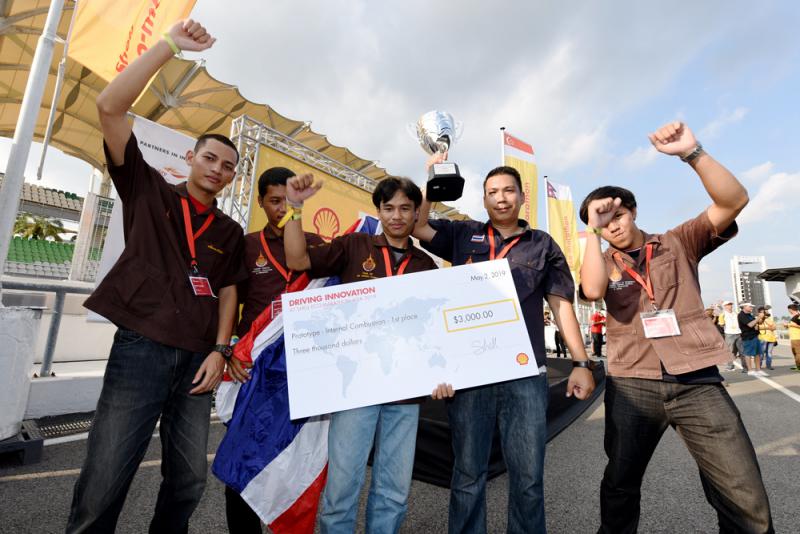
Other winners in the Prototype category include HuaQi-EV from China with a results of 501.6km/kWh in the Battery Electric sub-category and TP ECO FLASH from Singapore with a mileage of 403.3km/m3 in the Hydrogen sub-category.
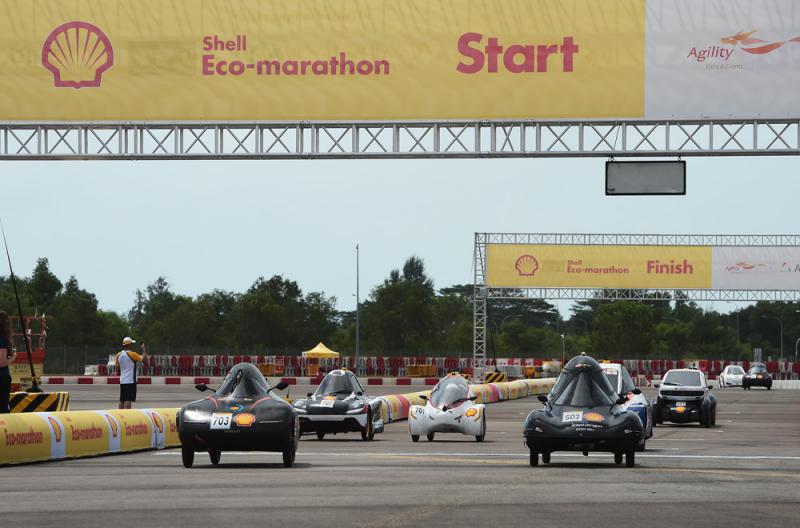
Drivers’ World Championship
At the Drivers’ World Championship Asia finals, essentially the qualifier event for the World stage, Nanyang E Drive from Nanyang Technological University (Singapore) came from behind to clinch the top spot. It’s the first time in the history of the DWC that a hydrogen fuel cell-powered car has won the race.
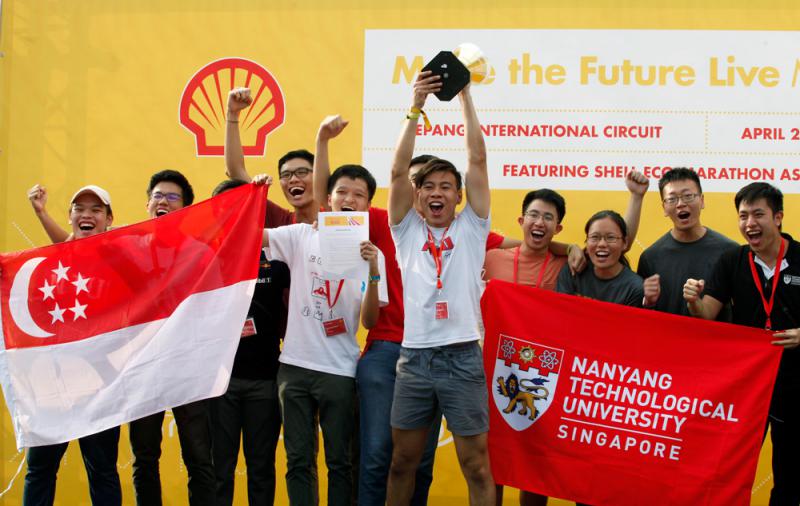
The team’s UrbanConcept vehicle was running a close second for most of the race before crossing the finish line first, without running out of their limited allocation of fuel.
The team attributes its success to good teamwork, a crucial element in this gruelling competition.
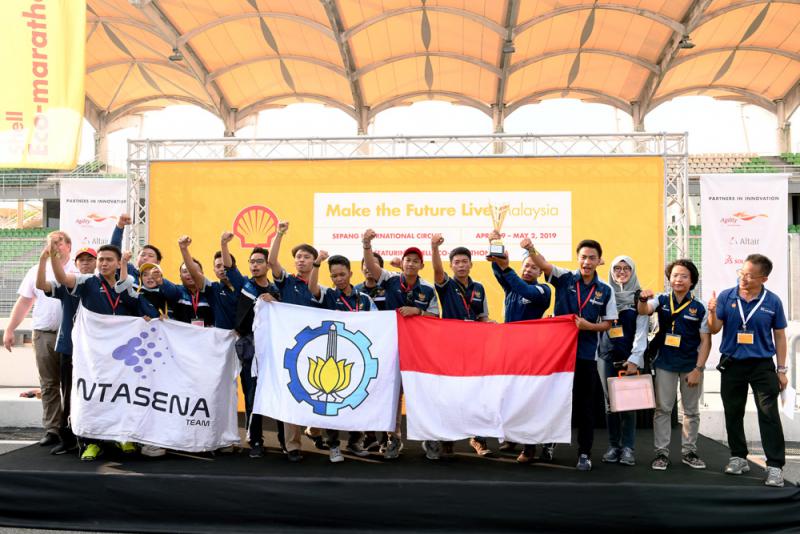
Taking second spot was ITS Team 5 from Institut Teknologi Sepuluh Nopember (Indonesia). Last year, ITS’ Team 2 was also runners-up in the DWC Asia finals, where Indonesian teams made a clean 1-2-3 sweep.
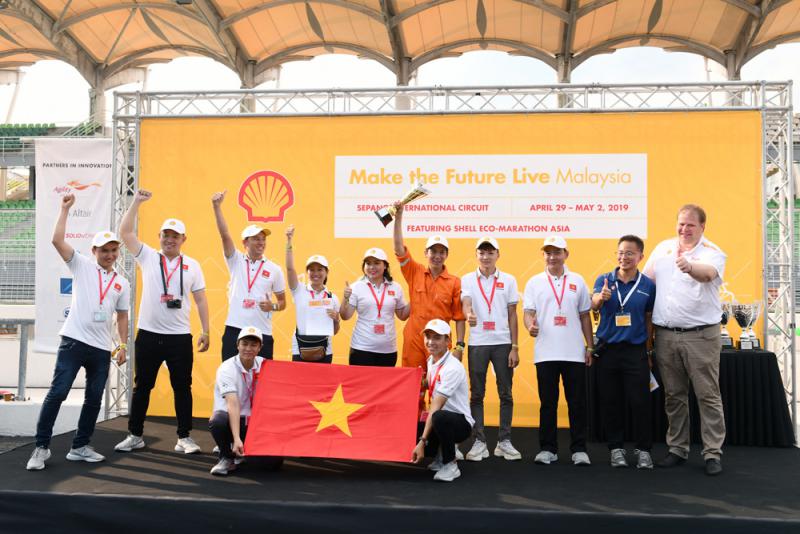
Finally, team LH-EST from Lac Hong University (Vietnam) took the final podium spot.
The top three teams from the Asia qualifier with have a chance to battle the best from the Americas and Europe in the Drivers’ World Championship–to be held at Make the Future Live in London, UK, this coming 5 July 2019.
[irp]
The ultimate champion will be awarded an exclusive invitation to visit Scuderia Ferrari’s exclusive headquarters in Italy where they will participate in exciting workshops and learn from the best at Maranello.
“The Drivers’ World Championship incorporates both the fuel efficiency of the vehicle with the technique and skills of the driver. This time it is the strategy of handling the vehicles while simultaneously managing fuel efficiency. We saw amazing action and my congratulations goes to all the teams for all their achievements,” said Norman Koch, Make the Future Live General Manager.
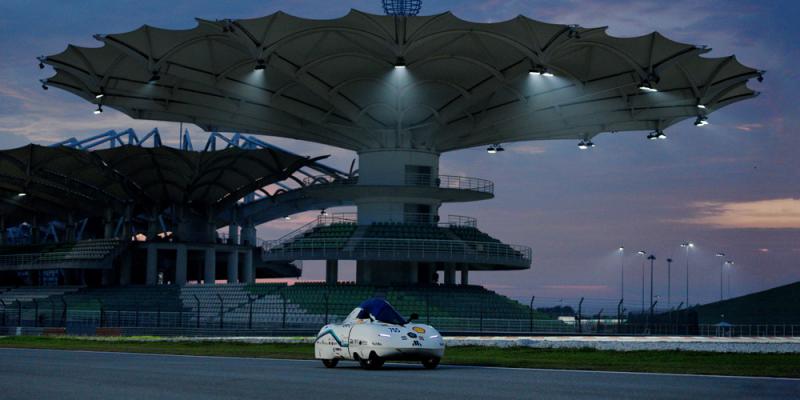
This year’s competition has been especially interesting–for the first time ever it was held at a real race track, the iconic Sepang International Circuit (SIC). Additionally, it’s the first time that the competition hosted night racing, which proved to be exciting for both participants and spectators alike.
You can win off-track, too
Shell Eco-marathon transcends track-based victories. Teams are also recognised for other areas including communications, technical innovation, design, safety, and perseverance.
This year, a new off-track award–Circular Economy Award–was introduced to recognise the team that demonstrates “circular economy” thinking in the concept, design and functioning of their vehicle.
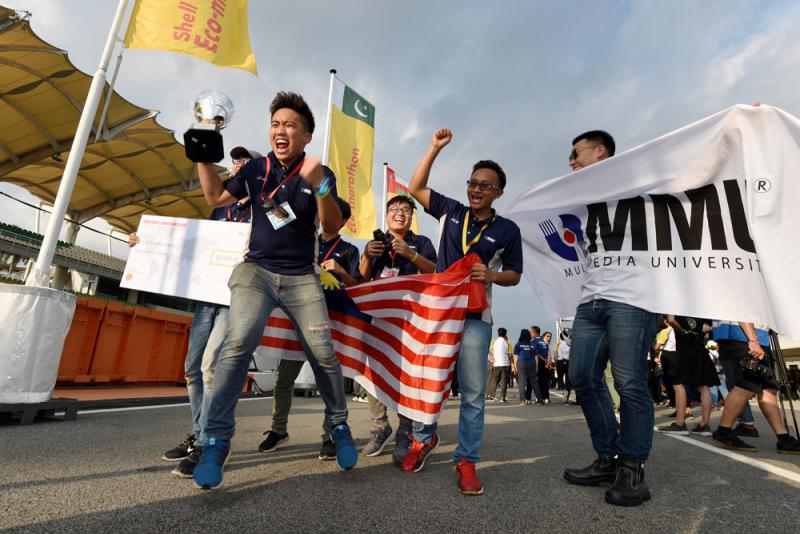
The objective of the award is to motivate students to think of ways to integrate the concept of circular economy in the engineering of materials, products and services for real world industrial and consumer solutions.
The winner of the Circular Economy Award is MMU Grune Welt from Multimedia University Melaka Campus, Malaysia. The surprise winners received USD3,000 in prize money in recognition of their achievement.
The team bounced back from past year’s failures, and was thrilled that all their hard work and effort has paid off.
[irp]
Malaysia fielded five teams this year, surprisingly less than previous years, seeing that the country plays host to the 10th anniversary event. The Malaysian universities that participated were Monash University Malaysia, Universiti Teknologi MARA, Universiti Malaysia Pahang, Universiti Tunku Abdul Rahman and Multimedia University.
All five teams succeeded in passing technical inspections and recording valid official on-track results.
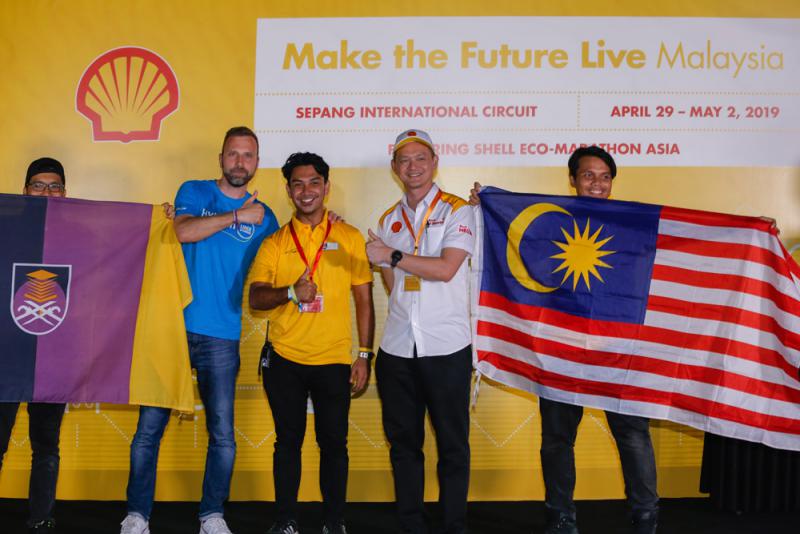
Team UiTM Eco-Planet, a veteran at SEMA, came in third in the hydrogen fuel cell sub-category, after last year’s failed attempt. The Malaysian team went on to compete in the Drivers’ World Championship qualifier.
Overall, there were 100 teams representing 18 countries across Asia Pacific and the Middle East participating this year. For the first time, the competition saw participation from Kathmandu University of Nepal, that competed in the Prototype gasoline category. This year also saw three all-girl teams in the competition.
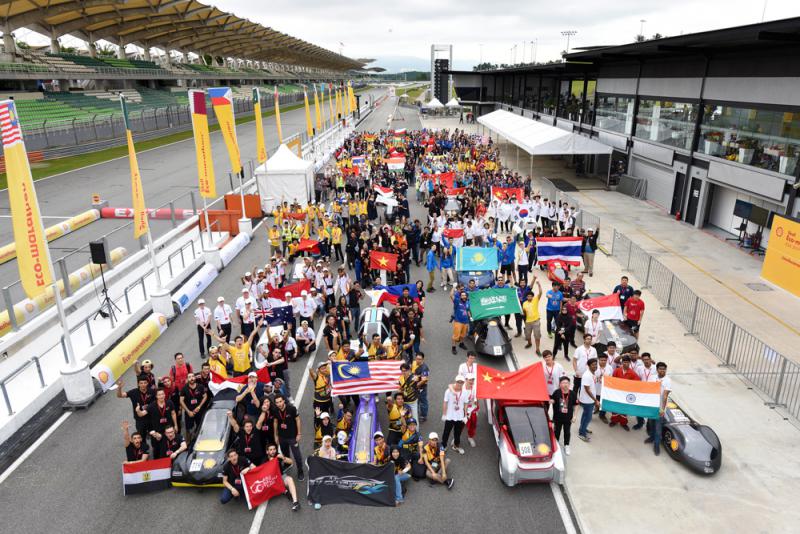
2019 Shell Eco-marathon Asia On-track Full Results
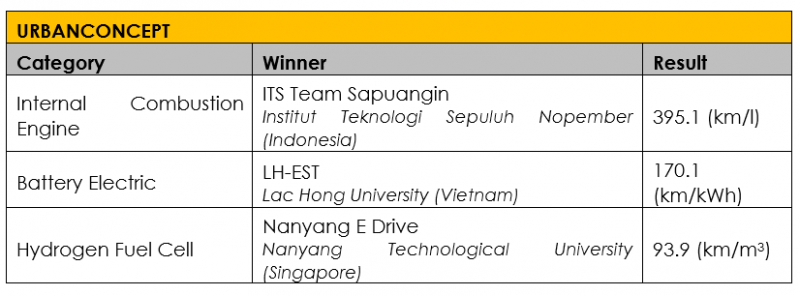
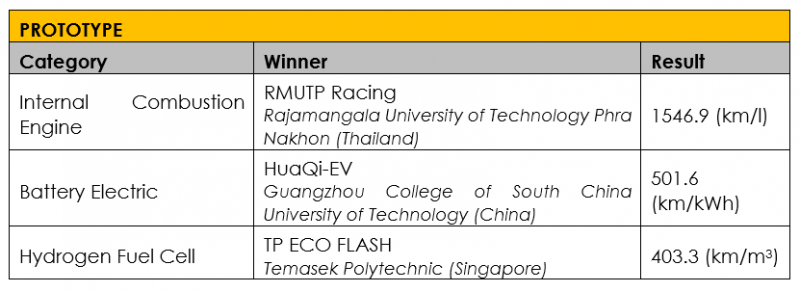

2019 Shell Eco-marathon Asia Off-track Awards Full Results
Communications Award, USD3,000 Prize Money:
KMUTT E-Drive Revolution, King Mongkut’s University of Technology Thonburi, Thailand
Technical Innovation Award, USD3,000 Prize Money:
GUC Innovators, German University, Cairo, Egypt
Vehicle Design (Prototype) Award, USD3,000 Prize Money:
Team Averera, Indian Institute of Technology, Banaras Hindu University, India
Vehicle Design (UrbanConcept) Award, USD3,000 Prize Money:
Nanyang E Drive, Nanyang Technological University, Singapore
Safety Award, USD3,000 Prize Money:
CUT Eco-Racing UC, Cairo University, Egypt
Hydrogen Newcomer Award, USD3,000 Prize Money:
ITS Team 5, Institut Teknologi Sepuluh Nopember, Indonesia
Perseverance & Spirit of the Event Award, USD3,000 Prize Money:
S.U Racing Team, Satbayev Kazakh National Technical University Kazakhstan
Check out the full results and team information here.

Make the Future Live is a global programme that brings people and ideas together, to drive towards a lower-carbon energy future.
For more information on Make the Future Live Malaysia and Shell Eco-marathon Asia 2019, visit: www.shell.my/makethefuture
Follow me for updates
For on-the-ground updates, follow me at vernonchan.com/cars/makethefuture, as well as on Facebook, Twitter and Instagram.


